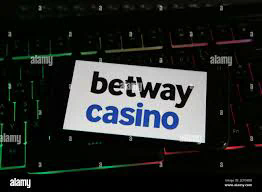# The Rise of Decentralized Crypto Casinos
As the world continues to embrace digital currencies and blockchain technology, various sectors are witnessing transformative changes. One such sector is online gambling, where decentralized crypto casinos are emerging as an innovative alternative to traditional online gambling platforms. This article will explore the evolution, benefits, challenges, and future potential of decentralized crypto casinos.
## Understanding Decentralized Crypto Casinos
Decentralized crypto casinos leverage blockchain technology to facilitate online gambling without the need for an intermediary. Unlike traditional online casinos, which operate under a centralized authority, decentralized casinos allow users to engage directly with the gaming platform using cryptocurrencies such as Bitcoin, Ethereum, or other altcoins. This revolutionary approach minimizes the risk of fraud and improves transparency, as all transactions are recorded on the blockchain.
Decentralized casinos generally operate on smart contracts, which are self-executing contracts with the terms of the agreement directly written into code. This ensures that the gameplay is fair and that users can verify the legitimacy of the games they play. Players can access decentralized casinos using web browsers, often without the need for registration or identity verification, which further enhances user privacy.
## The Advantages of Decentralized Gaming
One of the primary benefits of decentralized crypto casinos is the increased level of transparency they offer. Since every transaction is recorded on the blockchain, players can independently verify the fairness of games, including the odds and outcomes. This transparency can help instill trust in players who have previously been skeptical of traditional online gambling platforms, which are frequently criticized for lacking accountability.
Furthermore, decentralized crypto casinos often have lower fees than their centralized counterparts. Without the overhead costs associated with maintaining a centralized server and operating a traditional business, these platforms can pass on the savings to players in the form of lower house edges or better odds. This competitive advantage can attract a wider audience, encouraging more players to participate in decentralized gambling.
Additionally, the anonymity provided by decentralized crypto casinos can be appealing to those who prefer not to disclose their personal information while gambling online. By utilizing cryptocurrencies for transactions, players can maintain their privacy, making it a more attractive option for users in countries where online gambling is heavily regulated or restricted.

## Challenges Facing Decentralized Crypto Casinos
Despite the numerous benefits associated with decentralized crypto casinos, there are still significant challenges that must be addressed for broader adoption. One major obstacle is the regulatory landscape. As governments around the world grapple with how to regulate cryptocurrencies and online gambling, decentralized casinos could find themselves in legal gray areas. This uncertainty can deter potential players and investors, as the long-term viability of such platforms remains uncertain.
Another challenge is the issue of user experience. While blockchain technology has come a long way, many decentralized crypto casinos still struggle to match the streamlined and user-friendly interfaces of traditional online casinos. Issues such as slow transaction times and complex wallet setups can create friction for new users, making it difficult for some potential players to fully embrace decentralized gaming.
Moreover, smart contracts, while offering transparency and security, are not infallible. Coding errors or vulnerabilities could expose players to risks, such as losing their funds or experiencing unfair gameplay. As decentralized casinos become more popular, the need for rigorous auditing and quality assurance of smart contracts becomes increasingly critical to ensure user safety and maintain trust.
## The Future of Decentralized Crypto Gambling
Despite the challenges, the future of decentralized crypto casinos looks promising. As more people recognize the advantages of blockchain technology and cryptocurrencies, the demand for decentralized gaming experiences will likely continue to grow. Innovators and developers in the space are constantly exploring ways to improve user experiences, streamline transactions, and enhance security measures.
Moreover, the rise of decentralized finance (DeFi) is opening up new possibilities for integrated gaming experiences. By leveraging DeFi protocols, decentralized casinos can offer users access to innovative features such as yield farming, staking, and liquidity pools, further enhancing the value proposition for players. These interconnected ecosystems may pave the way for a more robust and engaging gaming environment, attracting an even broader user base.
In addition, partnerships and collaborations with established gaming companies and blockchain platforms could help legitimize decentralized crypto casinos. By working alongside well-known entities, decentralized casinos can leverage their expertise, resources, and networks to gain traction and build trust within the gambling community.
## Strategies for Success in Decentralized Casinos
To thrive in the competitive landscape of decentralized crypto casinos, operators must adopt several key strategies. First, focusing on building a user-friendly interface is essential to attract new players. Simplifying the sign-up process, improving navigation, and providing seamless transaction experiences can help mitigate the friction many users face when entering the decentralized casino space.
Second, enhancing security measures should be a top priority. Regular audits of smart contracts and the implementation of best practices in cybersecurity are crucial for safeguarding user funds. Building a reputation for security and reliability will be vital for successful long-term operations.

Additionally, engaging with the community and fostering a sense of belonging can lead to loyal player bases. Regularly updating users on developments, soliciting feedback, and offering incentives or rewards for participation can create a positive community atmosphere. Educating players about the advantages of decentralized gaming and cryptocurrencies can further bolster adoption rates.
## Conclusion: The Transformation of Online Gambling
As decentralized crypto casinos continue to gain traction, they represent a significant transformation in the online gambling industry. By embracing blockchain technology and cryptocurrencies, these casinos provide a more transparent, secure, and user-centric alternative to traditional platforms. While challenges remain regarding regulation and user experience, the innovative nature of decentralized gaming will likely pave the way for its growth as the demand for online gambling evolves.
As players become increasingly aware of the benefits of decentralized casinos, we can expect to see a shift in the gaming landscape that values fairness, transparency, and user privacy. The successful integration of decentralized finance principles and partnerships with established gaming entities will further enhance the attractiveness of decentralized crypto casinos, positioning them as a formidable force in the future of online gambling.


